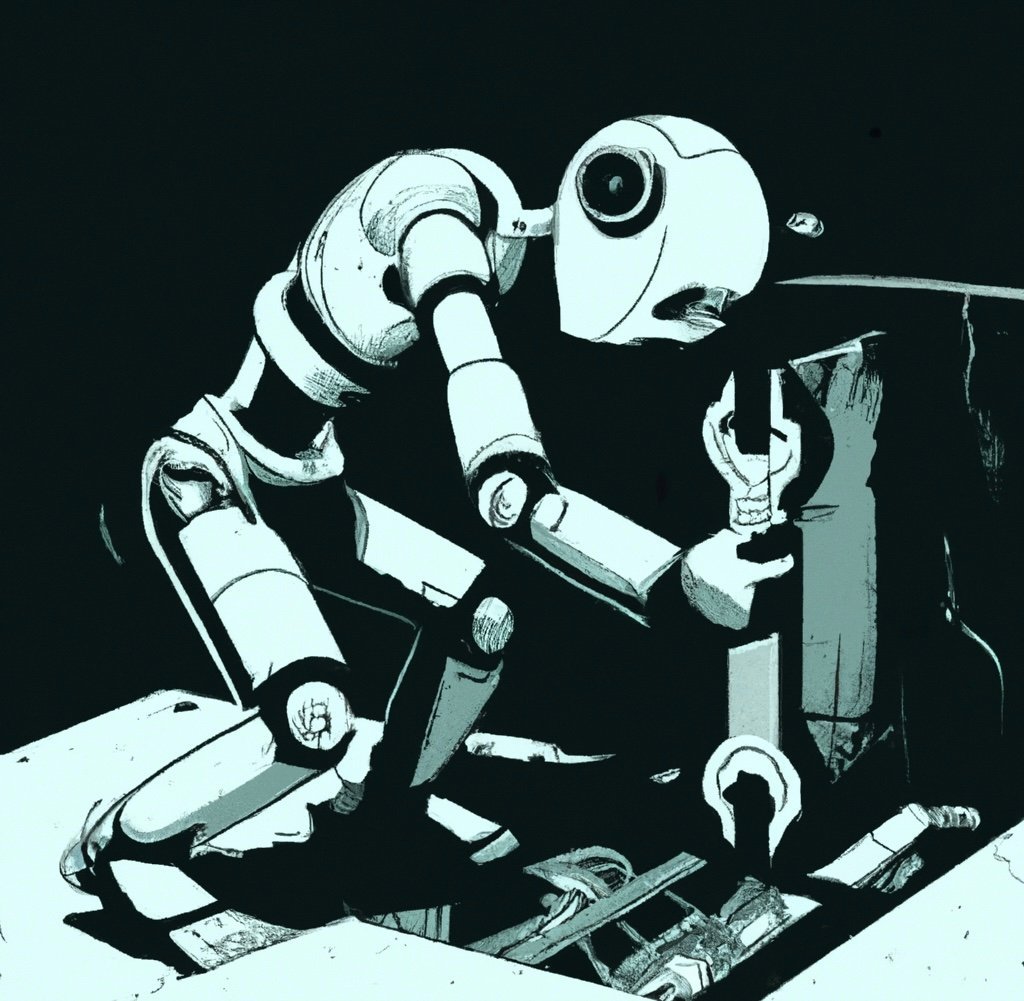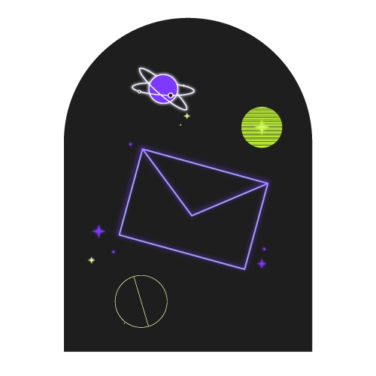Software testing is a vital phase in the development of any application. It is the process of evaluating the software's functionality, performance, and quality to ensure that it meets the specified requirements and operates as intended. However, traditional software testing methods can be time-consuming, tedious, and prone to human error. This is where Artificial Intelligence (AI) comes into play.
AI has revolutionized the software testing industry by offering faster, more efficient, and more accurate testing methods. AI-powered testing tools can analyze large sets of data and identify patterns and anomalies that might be overlooked by human testers. They can also perform repetitive tests and simulations at a faster pace, reducing testing time and costs significantly. In this article, I will explore the benefits and challenges of using AI in software testing and how it is transforming the industry.
What Is AI?
AI means a machine’s ability to do tasks normally done by human intelligence, like learning, reasoning, problem-solving, and decision-making. AI can be done through rule-based systems, expert systems, neural networks, and machine learning. AI uses techniques and algorithms to learn from data, make decisions based on patterns and rules, and improve performance over time.
In software testing, we can use AI to improve our software quality and the manual testing processes through test generation, test data creation, and automated test script writing.
AI and Machine Learning
The concept of artificial intelligence (AI) and machine learning (ML) are sometimes used interchangeably, but they are not exactly the same. AI refers to a machine's capacity to carry out common human activities like learning, thinking, and problem-solving. Using algorithms to evaluate data, learn from it, and make predictions or judgments based on that data is referred to as machine learning, a subset of artificial intelligence.
AI and machine learning can be applied to software testing to automate various steps in the testing procedure. AI-driven testing solutions can, for instance, assess the application being tested and produce test cases to cover important sections of the application. Software testers can save time and effort by doing this and trust that the most crucial portions of the program are adequately tested.
Testing data analysis and trend identification can both be done using machine learning—enabling testers to concentrate on the application's most important features while lowering the number of test cases. Additionally, faults and errors can be automatically detected using machine learning methods. Machine learning becomes especially helpful in large-scale applications where manual flaw detection may be more time-consuming and ineffective.
The Advantages of AI in Software Testing
I think AI is inevitable, and instead of fearing it or worrying that it will take our jobs, we should embrace it and take it for what it is - a tool to make our work easier. Here are a few ways to do that.
Increased speed and efficiency
One of the main advantages of using AI in software testing is the increased speed and efficiency that it brings. AI-powered tools can execute repetitive and time-consuming tasks like regression testing, functional testing, and performance testing much faster than human testers. This saves time, as well as reduces the risk of human error.
You can also use AI tools like ChatGPT to generate test cases in a few seconds, by giving it the acceptance criteria. Or you can use it to help with your software test automation efforts, by asking it to write BDD-style test scenarios, that you can include in a test automation framework, or even asking it to write the test scripts or to debug your test code.
Improved Quality Assurance
AI-powered tools can enhance software testing quality by identifying defects and bugs that might be otherwise missed. These tools can analyze large amounts of data and provide insights that improve the overall quality of the application under test. Furthermore, AI can help identify patterns and trends in testing data that can help improve the testing process and prevent defects from occurring in the future.AI can significantly improve quality assurance. Equip your QA team with the best software testing tools to ensure top-notch quality.
Cost Savings
Using AI in software testing can also lead to cost savings. By automating repetitive tasks, companies can reduce the need for human testers and save on labor costs. Additionally, AI-powered tools can help identify defects and bugs earlier in the software development lifecycle, reducing the cost to fix later on and even improving product launches.
AI Technologies for Software Testing
There are a lot of AI-powered testing tools or AI systems, technologies, and bots that can be used to improve the software testing process.
Automated Script Generation
AI-powered test automation tools can generate scripts automatically, saving qa team both time and effort. These tools can analyze the application under test and generate test scripts that cover all the important functionalities.
This not only saves time but also ensures that all the important features of the application are tested thoroughly. Some popular test automation tools that use AI for automated script generation include Testim and Katalon Studio.
Tools like ChatGPT can also be used for generating manual test cases or the source code for unit tests, helping to increase the test coverage.
Test Case Optimization
AI technologies can help optimize test cases by analyzing testing data and identifying patterns and trends. This helps testers focus on the most critical areas of the application and reduce the required test cases.
AI-powered test case optimization can also help identify redundant test cases that can be eliminated, saving time and effort while contributing to a reduced development cycle.
Some popular test case optimization tools that use AI include Applitools and TestCraft.
Automated Test Execution
AI technologies can automate test execution, reducing the need for human intervention and saving time and effort. This means more time for exploratory testing by the manual testing team.
AI-powered test automation tools can execute test cases automatically and provide detailed reports on the results. These tools can also analyze the results and identify defects and bugs that need to be fixed. Some popular test automation tools that use AI for automated test execution include Testim and Katalon Studio.
To maximize the benefits of AI in software testing, consider integrating specialized test management software into your workflow.
Self-Healing Capabilities
AI-powered testing frameworks can detect and fix defects automatically, reducing the need for manual intervention. These frameworks can analyze the testing data and identify defects that need to be fixed. They can then apply the necessary fixes automatically, ensuring that the application is functioning correctly.
For example, some tools have the option to automatically update XPaths or other locators for web applications. Popular AI-based software testing tools that use self-healing capabilities include Testim and Healenium.
Challenges of AI in Software Testing
But of course, nothing good comes without some hurdles, and artificial intelligence is no exception. Here are two of the most significant challenges of AI in software testing:
Long Learning Curve
The steep learning curve of AI in software testing is one of its biggest challenges. Effective usage of AI-powered testing tools necessitates extensive training and knowledge. This can be difficult for software testers unfamiliar with AI technologies. Additionally, it may be challenging to integrate AI-powered testing technologies into current testing processes due to their complexity. To make sure that their testers have the ability to use AI-powered testing solutions effectively, companies need to engage in training and education. that their testers have the necessary skills to use AI-powered testing tools effectively.
Difficulty of Debugging
The complexity of debugging is an additional challenge that comes from AI in software testing. Testing software with AI capabilities can provide a lot of data, which can be challenging to understand and comprehend. Additionally, it may be difficult to pinpoint the primary cause of errors and problems due to the complexity of AI algorithms. Software testers may find it challenging to effectively resolve bugs and flaws as a result. Businesses must make an investment in the systems and procedures that will enable them to efficiently examine and interpret the test results produced by AI-powered testing solutions.
Tips for Implementing AI in Software Testing
The software testing process can be significantly improved by including AI technologies. To ensure that the advantages of AI are completely reaped, it is crucial to approach the implementation process properly. The following advice can help you incorporate AI into software testing:
Research AI Tools
Research the available AI tools and choose the ones that are best suited to your needs before integrating AI technology in software testing. There are numerous testing tools powered by AI, and each has advantages and disadvantages. Selenium, Testim, Katalon Studio, and Applitools are some of the most well-known AI-powered testing tools.
Develop a Test Strategy
When incorporating AI technology in software testing, creating a test strategy is key. The testing strategy and testing goals are laid out in the test strategy. The testing procedure is also described, along with the tools and methods that will be used. It is crucial to take into account the special characteristics of AI, such as automatic script generation and self-healing capabilities, while creating a test plan for testing that is powered by AI. By doing this, you can make sure that the testing procedure is prepared for AI technology.
Invest in Training
When adopting AI technology in software testing, it's important to invest in training. Successful use of AI-powered testing tools requires extensive training and knowledge. Investing in training can help assure that your testers have the skills needed to use testing tools powered by AI. Your testers' understanding of the special powers of AI, such as automatic script generation and self-healing capabilities, can improve with training. By doing this, you can guarantee that your testing procedure is prepared for AI technology.

Tools For AI Software Testing
As of now, there are dozens of companies in the software testing space that leverage AI in software testing. Let’s have a look at some popular AI testing tools.
Tricentis Tosca
Tricentis Tosca is an enterprise tool used for end-to-end automated testing of software applications. Some of the key features offered by this system include model-based test automation, risk-based test optimization, and vision AI. The Vision AI element of this tool automates and adapts testing using the capabilities of AI. By fusing deep convolutional neural networks with clever algorithms, it produces dependable, self-healing, platform-independent UI automation tests.
TestRigor
TestRigor is an advanced AI-driven test automation tool designed to streamline and enhance the software testing process. By leveraging natural language processing, TestRigor enables users to create complex test scripts using plain English, significantly reducing the time and effort required for test creation and maintenance. Its intelligent automation capabilities ensure comprehensive test coverage and rapid identification of defects, allowing teams to deliver high-quality software faster. With features like cross-browser and cross-platform testing, seamless integration with CI/CD pipelines, and robust reporting, TestRigor empowers development and QA teams to achieve continuous delivery with confidence.
Parasoft
Parasoft is an automation tool for testing at any stage of the software development life cycle, from code analysis to user interface testing. It is a multi-component test suite that recently included AI and ML to help businesses deploy static analysis. The AI solution from Parasoft can identify errors before they cause problems, ensuring that a variety of functional safety, security, and code standards are met. It reduces the workload on teams and ensures that pressing design issues are taken care of first.
Applitools
Applitools is an AI-powered platform for visual testing and monitoring, also known as a next-generation test automation platform with Visual AI. Applitools Eyes, one of its key features, assists in boosting test coverage and lowering maintenance. The Ultrafast grid can speed up functional and visual tests by 30 times and assist with cross-browser and cross-device testing. Many of the current test frameworks and existing testing tools, such as Selenium, Appium, Cypress, etc., are compatible with the Applitools platform.
UI Path Test Suite
UiPath Test Suite integrates RPA (Robotic process automation) technology with testing capabilities to speed up testing and cross-enterprise cooperation and provide a consistent strategy for developing and implementing automation. Some of UIPath’s main components are the Test Manager, Studio Pro, Orchestrator, and Robots. Additionally, it has an intuitive UI and encourages collaboration through reusable artifacts.
What’s Next for AI?
AI is no longer a thing of the future—it is part of our lives now, especially our professional lives. And it’s a good thing, too, because it can be used to make our jobs easier.
Whether we use bots like ChatGPT to answer our questions, provide test scenarios and test data, or AI-powered tools to increase test automation coverage and reliability, artificial intelligence is a great tool to reduce manual work and improve productivity.
Subscribe to The CTO Club's newsletter to stay informed on the latest trends in AI and software testing.



